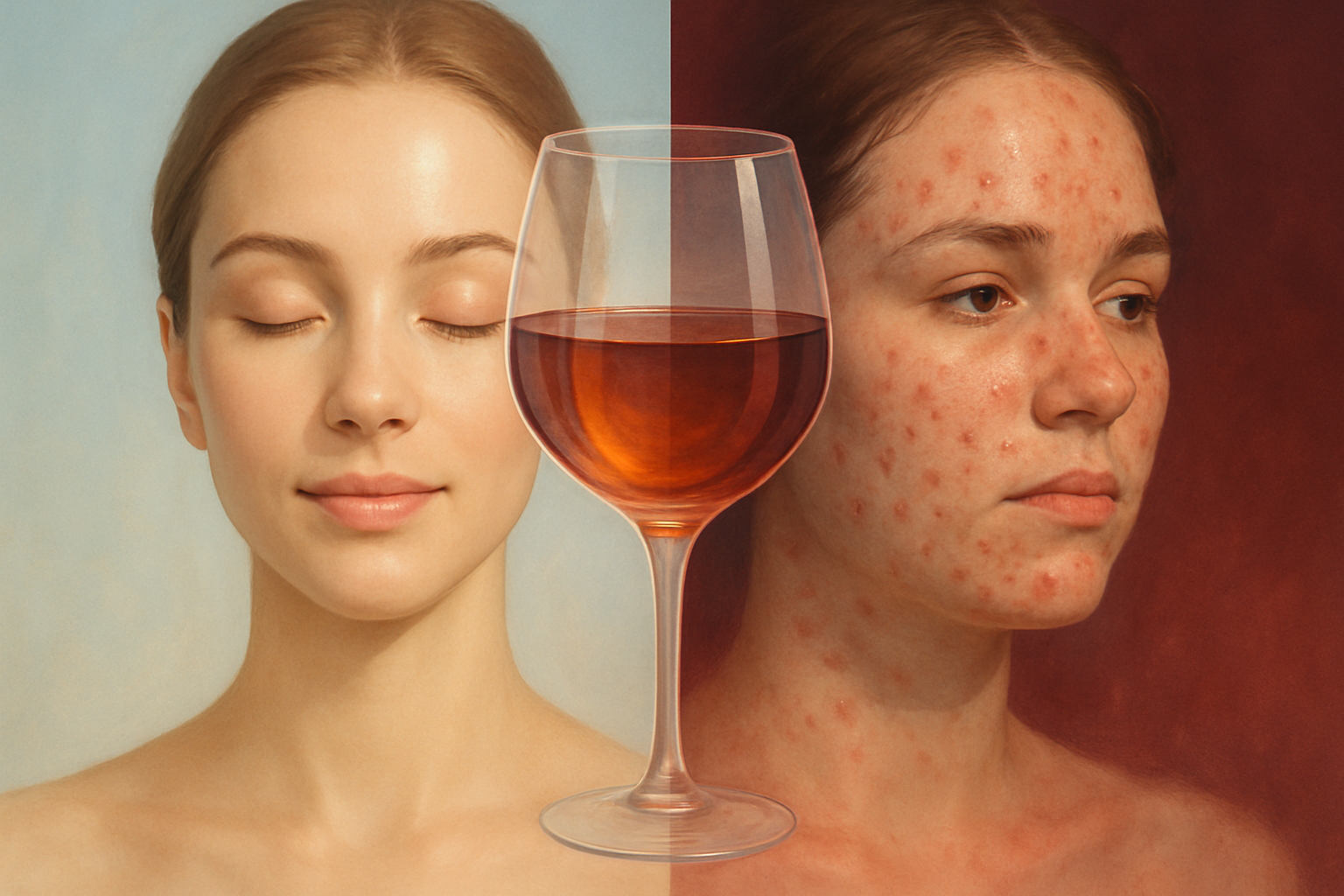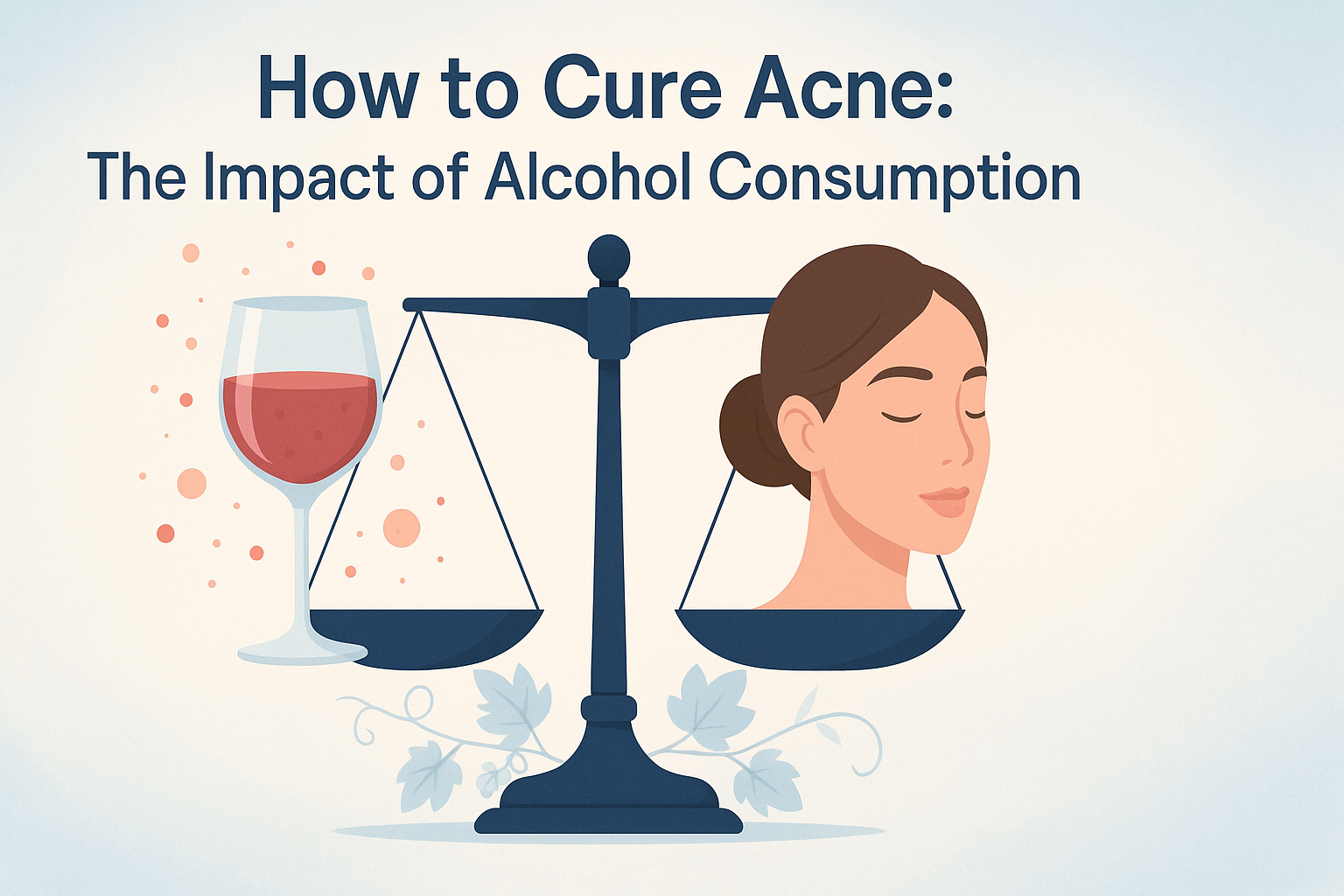How to Cure Acne: The Impact of Alcohol Consumption
Acne can be a frustrating and persistent skin issue for many individuals. While there are numerous factors that contribute to its development, one often overlooked culprit is alcohol consumption. In this blog post, we’ll explore the relationship between alcohol and acne, offering insights and practical advice for those looking to manage their skin health effectively.
Table of Contents
1. Introduction
2. Understanding Acne
3. Alcohol and Its Effects on the Skin
4. How Alcohol Can Trigger Acne
5. Tips for Managing Acne and Alcohol Consumption
6. Conclusion
7. FAQs
Introduction
Acne isn’t just a teenage problem; it affects adults too. Many factors contribute to acne, including diet, stress, and genetics. However, alcohol consumption is often an overlooked factor that could be exacerbating your skin issues. Let’s dive into how alcohol might be impacting your skin and what you can do about it.
Understanding Acne
Acne is a common skin condition that occurs when hair follicles become clogged with oil and dead skin cells. This can result in whiteheads, blackheads, or pimples. While it is most prevalent among teenagers, it can affect individuals of all ages.

Factors such as hormonal changes, diet, stress, and certain medications can all contribute to the development of acne. Understanding these underlying causes is crucial for effective management and treatment.
Alcohol and Its Effects on the Skin
Alcohol is known to have several effects on the body, and the skin is no exception. Here are some key ways alcohol can impact your skin:
Dehydration: Alcohol is a diuretic, meaning it increases urine production, leading to dehydration. Dehydrated skin can become dry, flaky, and more prone to acne.
Inflammation: Alcohol can cause inflammation in the body, which may exacerbate skin conditions like acne, rosacea, and psoriasis.
Hormonal Imbalance: Excessive alcohol consumption can disrupt hormone levels, leading to increased oil production and clogged pores.
How Alcohol Can Trigger Acne
Understanding the connection between alcohol and acne involves recognizing how alcohol affects your body’s systems. Here are some ways alcohol can trigger acne:
Increased Oil Production: Alcohol can cause your body to produce more oil, which can clog pores and lead to acne. This is particularly true for sugary alcoholic beverages, which can spike blood sugar levels and, in turn, affect hormone levels.
Weakened Immune System: Alcohol consumption can weaken your immune system, making it harder for your body to fight off acne-causing bacteria.
Increased Stress Levels: While many people drink alcohol to relieve stress, it can actually increase stress levels in the long run, leading to hormonal imbalances that can trigger breakouts.
Tips for Managing Acne and Alcohol Consumption
While giving up alcohol completely might not be necessary, moderation and mindful drinking can help manage acne symptoms. Here are some tips:
Stay Hydrated: Drink plenty of water before, during, and after alcohol consumption to keep your skin hydrated and reduce the risk of dehydration-related acne.
Choose Your Drinks Wisely: Opt for clear spirits like vodka or gin mixed with soda water and fresh lemon or lime instead of sugary cocktails or beer.
Limit Your Intake: Keep alcohol consumption to a minimum. The Centers for Disease Control and Prevention (CDC) defines moderate drinking as up to one drink per day for women and up to two drinks per day for men.
Maintain a Healthy Skincare Routine: Ensure you’re following a consistent skincare routine that includes cleansing, exfoliating, and moisturizing to keep your skin healthy and acne-free.
Consult a Dermatologist: If you’re struggling with persistent acne, consider consulting a dermatologist. They can provide personalized advice and treatment options tailored to your skin type and concerns.
Conclusion
While alcohol consumption can contribute to acne, understanding its effects on your skin can help you make informed choices. By moderating your alcohol intake and maintaining a healthy skincare routine, you can take proactive steps towards clearer, healthier skin. Remember, everyone’s skin is different, so finding what works best for you might take some time and experimentation.
FAQs
Q: Can I drink alcohol if I have acne?
A: Yes, you can still drink alcohol if you have acne, but it’s important to do so in moderation and be mindful of your choices. Opt for lower-sugar options and ensure you stay hydrated.
Q: Does quitting alcohol improve acne?
A: For some individuals, reducing or eliminating alcohol consumption can lead to improvements in acne. It largely depends on how alcohol affects your body’s systems and your overall lifestyle.
Q: Are there specific alcoholic beverages that are better for acne-prone skin?
A: Clear spirits like vodka or gin mixed with soda water and fresh citrus are typically better options for acne-prone skin compared to sugary cocktails or beer.
Remember, moderation is key, and maintaining a balanced lifestyle can significantly impact your skin’s health. Cheers to healthier skin! 🥂
